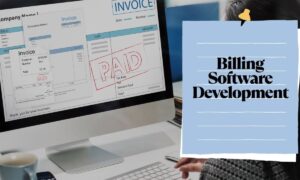In today’s fast-paced business environment, efficiency and accuracy in supply chain operations are more critical than ever. One effective way to achieve these goals is by implementing label management software. This technology can significantly enhance how businesses manage their supply chains, offering benefits ranging from improved inventory control to better compliance with regulatory requirements. We will explore how label management software can streamline your supply chain operations, ultimately leading to increased productivity and cost savings.
Enhancing Inventory Management
Effective inventory management is crucial for maintaining a smooth supply chain. Label management software allows for precise tracking of inventory levels in real-time. By generating and scanning labels for every item, businesses can maintain accurate stock levels, locations, and movement records. This eliminates the guesswork involved in manual inventory counts and reduces the risk of overstocking or stockouts. Furthermore, automated labeling can facilitate quicker and more efficient order fulfillment processes, as employees can quickly identify and locate items. This enhanced visibility into inventory also aids in demand forecasting, allowing businesses to adjust their procurement strategies to meet actual needs, thereby reducing waste and optimizing resources.
Improving Compliance and Traceability
Compliance with industry standards and regulatory requirements is a significant concern for many businesses, particularly in the pharmaceuticals, food and beverage, and manufacturing sectors. Label management software ensures that all products are labeled accurately and consistently, adhering to the guidelines. This not only helps in avoiding costly fines and penalties but also enhances traceability throughout the supply chain. Businesses can quickly identify affected batches and take appropriate action in a recall or quality issue. The software’s ability to generate detailed audit trails further supports compliance efforts, providing a clear record of all labeling activities. This level of traceability is invaluable for maintaining quality control and ensuring customer safety.
Streamlining Shipping and Receiving Processes
The shipping and receiving stages of the supply chain can be fraught with inefficiencies, particularly when relying on manual processes. Label management software automates these tasks, significantly reducing the time and effort required. Businesses can streamline the packing process by generating shipping labels that include all necessary information, such as destination, weight, and handling instructions. This ensures that packages are accurately labeled and reduces the risk of errors that can lead to delays or lost shipments. Similarly, receiving processes are expedited through barcode scanning, allowing quick verification of incoming goods. This speeds up the overall process and improves accuracy, as items are automatically checked against purchase orders and inventory records.
Enhancing Communication and Collaboration
Effective communication and collaboration are essential for a well-functioning supply chain. Label management software can play a pivotal role by providing a centralized platform for managing labeling information. This ensures that all stakeholders can access consistent and up-to-date information, from suppliers to warehouse staff to logistics partners. By standardizing labeling practices, businesses can reduce misunderstandings and discrepancies using different labeling systems. Furthermore, the software’s integration with other enterprise systems, such as ERP and WMS, facilitates seamless data exchange and collaboration across the supply chain. This integration level helps synchronize activities, improve coordination, and ensure that everyone is working towards common goals.
Reducing Costs and Increasing Efficiency
One of the most compelling reasons to implement label management software is its potential to reduce costs and increase efficiency. By automating labeling processes, businesses can significantly cut down on labor costs associated with manual labeling. Reducing errors and decreasing rework and waste also contribute to cost savings. The software’s ability to optimize inventory levels and streamline shipping and receiving processes can also lead to further operational efficiencies. The improved accuracy and speed gained through automation result in faster turnaround times and better utilization of resources. Over time, these efficiencies can translate into substantial financial benefits, making label management software a worthwhile investment for any business looking to enhance its supply chain operations.
Label management software offers a multitude of benefits for streamlining supply chain operations. This technology can transform how businesses manage their supply chains, from enhancing inventory management and improving compliance to streamlining shipping and receiving processes. By providing greater visibility, accuracy, and efficiency, label management software reduces costs and supports better decision-making and strategic planning. As supply chains grow in complexity, adopting such technology becomes increasingly essential for maintaining competitiveness and ensuring long-term success. Investing in label management software is a strategic move that can yield significant returns, ultimately leading to a more efficient and resilient supply chain. Embracing these advancements will empower businesses to adapt to evolving market demands and seize new opportunities for growth and innovation.

































